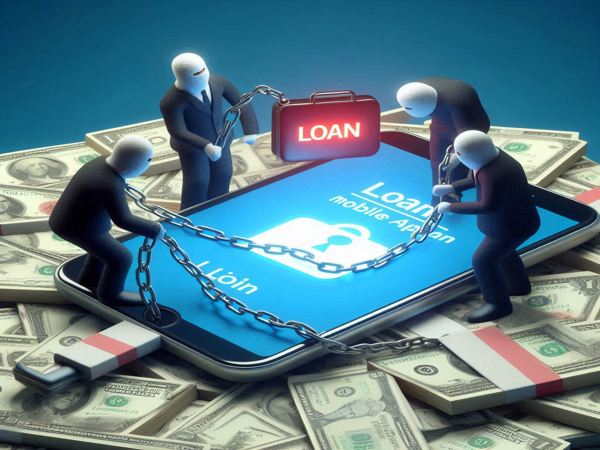In recent years, loan apps in Nigeria have become a quick fix for financial emergencies, providing fast access to credit without the usual hassles associated with traditional banks. However, these apps are increasingly exploiting their users through aggressive and unethical tactics—especially defamation. They shame borrowers who miss repayments, sending messages to contacts and tarnishing reputations. Unfortunately, many people feel compelled to repay these loans after such defamation, enriching the loan apps and allowing the cycle to continue unchecked.
Here’s why paying after being defamed is not only detrimental to you but also fuels a predatory system.
Weak and Naive Borrowers are Feeding the Beast
The real problem with loan apps isn’t the interest rates or the ease of access. The issue lies in how quickly they defame their customers and the fact that so many people give in to these tactics. Paying off a loan after being publicly shamed might seem like the best way to protect your dignity, but it only feeds a toxic business model that thrives on ruining lives.
Let’s break it down:
If a loan app lends out ?1 million to its total users in just one week, they stand to make a profit of ?300,000 to ?500,000. This gives them a gross of ?1.5 million. Fast-forward a month, and that gross can reach up to ?2 million. Over the course of a year, that turns into a turnover of ?10 million to ?20 million—simply by recycling the same ?1 million capital.
It's not just about making money; it's about making massive profits through intimidation, harassment, and shaming. Defamation is their weapon of choice, and the people who pay after being shamed are their biggest contributors.
Profit Isn’t the Problem; Defamation Is
There’s nothing inherently wrong with making a profit, especially for businesses offering needed services. However, the issue arises when these businesses cross the line into unethical practices like public shaming. Loan apps have turned defamation into a weapon to force repayments, preying on the fears of borrowers who don’t want their reputations damaged.
Rather than focus on building better lending practices or offering financial education to help users make more informed borrowing decisions, these companies resort to tactics that can ruin someone’s standing in their community or professional life.
It’s this unethical side of the business that we must resist.
Why Legal and Regulatory Bodies Aren’t Helping
The unfortunate truth is that this evil business is hard to shut down. Regulatory bodies like the Federal Competition and Consumer Protection Commission (FCCPC) don’t have the power to fully clamp down on these practices. The Central Bank of Nigeria (CBN) has the authority to freeze their accounts, but so far, they have shown little interest in intervening to protect the masses.
That leaves borrowers at the mercy of loan sharks who continue to grow their businesses through fear and manipulation.
The Only Solution: Stop Borrowing, Don’t Pay After Defamation
Here’s the harsh truth: the only way to break the cycle is to stop borrowing and refuse to pay after being defamed. The more people pay up after being shamed, the more these loan apps profit from their unethical practices. Borrowing from these loan sharks, especially after they've already ruined your reputation, only deepens the problem and makes you part of the system that allows them to thrive.
These apps are not here to help you; they’re here to profit off your desperation. The best way to fight back is to unite against their tactics and spread awareness.
Why You Should Stand Firm
You may feel alone, but you're not. There are over 500 loan apps operating in Nigeria alone. Each of these apps relies on a steady flow of new and repeat borrowers who fall victim to their defamation tactics. Imagine the impact if more people decided to take a stand—if borrowers stopped repaying after defamation and refused to be intimidated.
Yes, standing up to these loan sharks can be difficult. But it’s the only way to disrupt their profit model. Once they realize they can't make money by shaming people, they'll either be forced to change their methods or lose their grip on the market.
Conclusion: Together, We Can End This
The fight against loan sharks and their predatory tactics isn't one that regulatory bodies seem ready to take on. The FCCPC can’t win this battle alone, and the CBN’s silence is deafening. But we, the borrowers, have the power to stop this evil business model by refusing to pay after being defamed.
We must unite, raise awareness, and resist the urge to give in to their threats. This business will never collapse as long as people continue to repay out of fear or shame. Let’s work together to put an end to defamation as a business tactic. Say no to paying after defamation. Say no to loan sharks.
In the end, your dignity and peace of mind are worth more than any quick loan.

.jpg)







